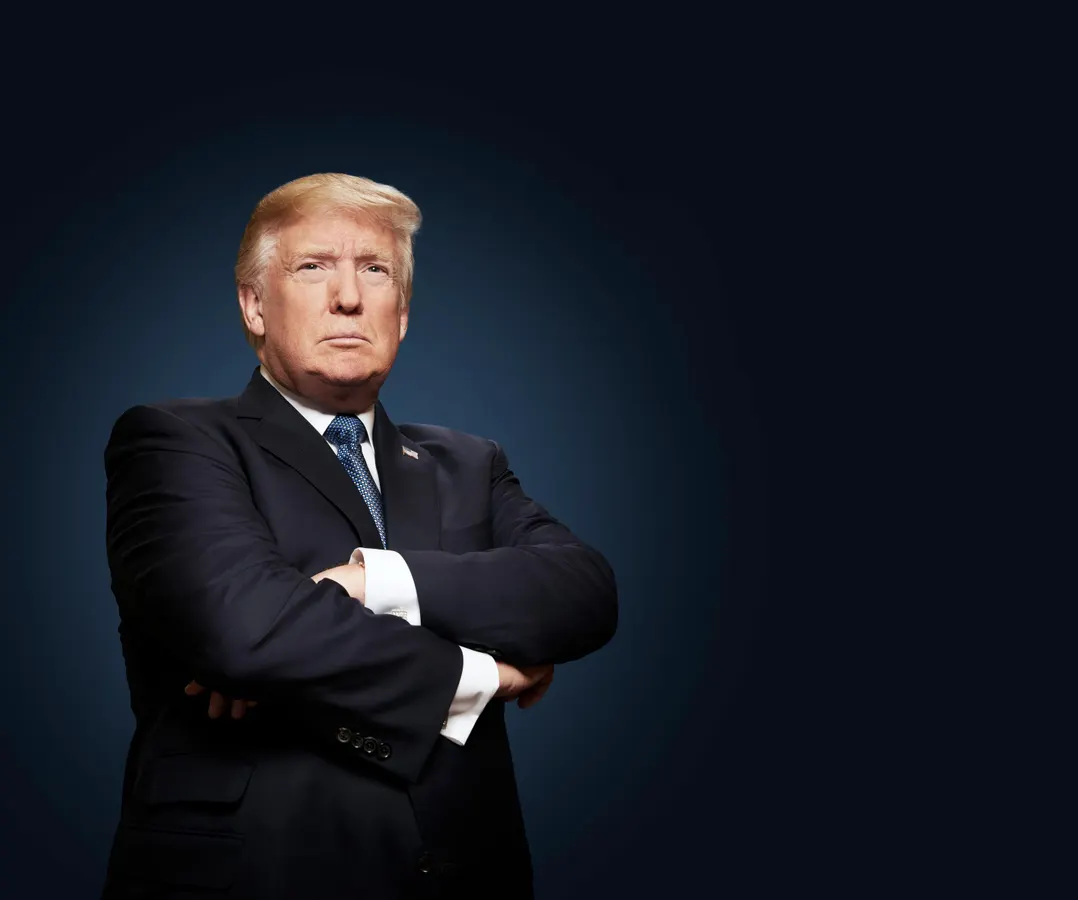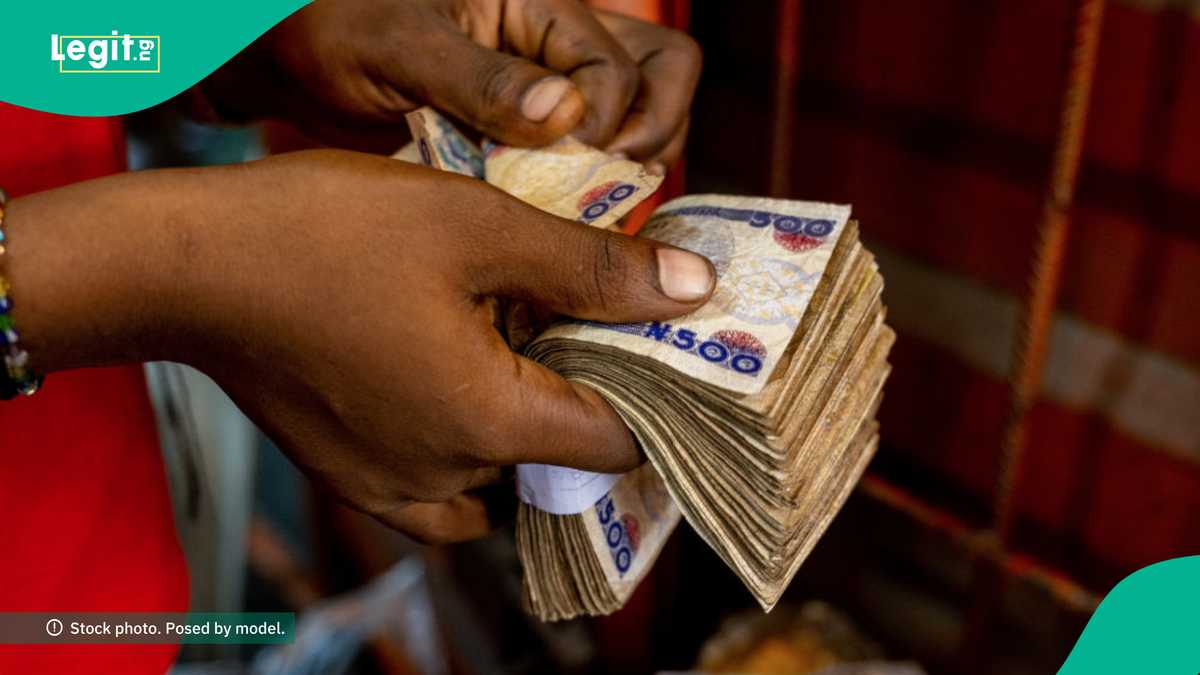By Contributor,Dan Alexander,Emily Garcia
Copyright forbes

President Donald Trump
Jamel Toppin for Forbes
Running for a second term has been President Donald Trump’s most successful investment to date. Since winning the election in 2024, Trump’s net worth has almost doubled, thanks to his crypto portfolio, new foreign real estate licensing deals and thriving golf clubs.
Another change from his last term: The size and composition of the president’s stock portfolio. When Trump left office in 2021, he had three family trusts with about 30 holdings in each of them, most of which were exchange traded funds and mutual funds, diversified baskets of holdings rather than investments in individual companies. A string of dealmaking during his years out of office filled his pockets with cash. And, per Trump’s last financial disclosure released June 14, he has funneled some of the money into four massive investment accounts with stakes in more than 700 different companies. Just one of his accounts spans the alphabet twice naming companies in which it’s invested. (Only the letter Y has just one investment: Yum Brands.) Altogether he holds nearly $50 million in stocks, per Forbes estimates.
Despite his previous animosity towards Big Tech, Trump has invested a substantial amount of money into several American tech companies. Many leaders of these companies have become repeat guests of the president’s, fête-ing his second inauguration in January, meeting with him privately in Washington D.C. and accompanying him on state visits to foreign countries. And at least five of Trump’s ten biggest holdings have benefited from his recent executive orders or enjoyed special exceptions from his administration’s sweeping tariffs.
Here are the top 10 publicly traded companies in Trump’s investment portfolio, according to the president’s latest financial disclosure report:
Trump Media & Technology Group – Trump holdings: About $2 billion
Not surprisingly, President Trump’s biggest investment is in his own Trump Media and Technology Group, the parent company of Truth Social. Trump debuted the platform in 2022 after Twitter banned him in the wake of the Jan. 6 riot. The business, which went public in March 2024 after merging with a Digital World Acquisition, a special-purpose acquisition company, is now mainly just a Bitcoin holding company, having purchased $2 billion of the cryptocurrency in July. Trump owns roughly 52% of the company.
Blue Owl Capital: $5 million-$25 million
In August, Trump signed an executive order to remove regulatory hurdles placed on retirees seeking to invest their 401(k)s in private equity. Less than a month earlier, Blue Owl Capital Corp, a firm that specializes in private capital, announced a partnership with Voya Financial to develop private capital investment options for retirement accounts. One of Blue Owl’s directors, Edward D’Alelio, previously served on the board of Trump Entertainment Resorts – a company that went bankrupt twice before Icahn Enterprises acquired it in 2016.
Apple: $650,000-$1.4 million
Despite Trump’s threat of a 100% tariff on computer chips made overseas, Apple’s stock has continued to rise. One reason is likely CEO Tim Cook’s handling of Trump. He appeared at the White House in August to announce that the company will spend $600 billion over four years to keep manufacturing components of the iPhone in the U.S., though Cook reportedly said final assembly will still take place “elsewhere for a while.” The move secured Apple an exemption from the possible tariff. Recently, Cook, who reportedly disappointed Trump in May when he declined to accompany him to the Middle East, joined Trump and King Charles at a state dinner in the U.K.
Microsoft: $630,000-$1.4 million
Bill Gates, cofounder of technology behemoth Microsoft, has also enjoyed considerable facetime with the commander in chief. Gates joined Apple’s Cook, Google’s Sergey Brin and Meta’s Mark Zuckerberg, at a White House dinner in early September. Unlike other tech tycoons, Gates is concerned not just with Microsoft’s fate but charitable programs around the world. He has been a vocal supporter of USAID, a government agency tasked with providing humanitarian aid overseas, which the Trump administration aims to dismantle. Despite Gates’ defense of USAID in a meeting with Trump earlier this year, the president has not backed down on unilaterally cutting billions of dollars from the programs. The issue of whether Trump has the authority to limit congressionally-approved federal aid made its way to the Supreme Court this month, where the court issued a pause on the lower court’s decision that the Trump administration must commit to spending $4 billion in USAID funds by Sept. 30.
Nvidia: $615,000-$1.3 million
Jensen Huang, the cofounder and CEO of Nvidia, reportedly convinced Trump in July to reverse course on a policy prohibiting the sale of AI chips to China. Just days after his meeting with Trump in Washington D.C., Nvidia announced an unprecedented deal with the Trump administration, agreeing to turn over 15% of the graphics chipmaker’s sales in China in return for export licenses. Then, in September, the AI chip giant announced a $5 billion investment in Intel, which got a 10% investment from the government weeks before.
Broadcom: $580,000-$1.2 million
The American semiconductor and chip manufacturer has previously been at odds with the Trump administration. Back in 2017, Singapore-based Broadcom planned to acquire its U.S.-based competitor, Qualcomm. Trump blocked the deal, citing Broadcom’s foreign ties, even after the company announced plans to relocate to the United States. The White House issued a statement in March 2018 saying that there was “credible evidence” that Broadcom might take action to impair national security if it acquired Qualcomm. Broadcom withdrew its bid to buy the company two days later. It is unclear what impact Trump’s tariff threat on foreign-made semiconductors and chips will have on Broadcom. The president has said tariffs will not be imposed on companies that make significant investments in U.S. manufacturing. Broadcom has yet to announce a plan of its own, but Apple named the chipmaker as a partner in its manufacturing plan.
Blackstone: $500,000-$1 million
Financial behemoth Blackstone has more than $1 trillion in assets under management. The company’s CEO, Stephen Schwarzman, is a vocal supporter of Trump, who tapped the private-equity mogul to serve as an advisor on business policy and trade in 2016. During Trump’s first reelection bid, Schwarzman donated $3 million to a super PAC associated with Trump. Though he reversed course in 2022, calling for a new generation of Republican leaders, Schwarzman hopped back on the Trump train in 2024 – endorsing the president for a second term. Schwarzman also joined Trump at a state dinner in the U.K. earlier this month.
Meta: $315,000-$650,000
In 2021, following the Jan. 6 attack on the Capitol, Meta indefinitely suspended Trump from Facebook and Instagram. Trump sued, claiming wrongful censorship. Despite lifting the suspension in 2023, Meta agreed to settle the lawsuit in January by handing over $25 million to support Trump’s future presidential library and to cover legal expenses. Meta CEO Mark Zuckerberg has since met with the president several times since his second inauguration. In August, Zuckerberg reportedly went to the White House to meet with Trump about European regulations on Big Tech. This has been a pet issue of Zuckerberg’s, one he expounded up earlier this year on Joe Rogan’s podcast. On the show he called these regulations “like a tariff” and complained that the EU has fined tech companies more than $30 billion. Days after reportedly meeting with Zuckerberg in August, Trump posted a lengthy statement to Truth Social threatening substantial tariffs on countries that impose “discriminatory” regulations on American tech companies.
Amazon: $315,000-$650,000
Despite tweeting that he wanted to “send Donald to space” in 2016, Amazon founder Jeff Bezos has cozied up to the president in his second term. In May, Bezos was one of several tech titans who accompanied Trump to Saudi Arabia as part of Trump’s bid for foreign investment and expanded business ties. He and Blue Origin CEO Dave Limp approached the president to talk about government contracts after a falling out between Trump and Elon Musk, whose SpaceX is a major government contractor, according to the Wall Street Journal.
Alphabet: $300,000-$615,000
Earlier this month, Google’s parent company Alphabet added $230 billion to its market cap after receiving a favorable ruling in a federal antitrust lawsuit the Department of Justice brought against the company in Trump’s first term. Trump congratulated the company’s CEO Sundar Pichai and Google co-founder Sergey Brin, who were present at the Sept. 5 White House dinner with tech leaders. The tech giant is still battling with the federal government in court over whether Google can keep its monopoly on advertising technology.
ForbesHere’s How Much The Trump Kids Have Made Because Of The PresidencyBy Dan Alexander
ForbesTurning Point USA Raised $389 Million Under Charlie Kirk—Including $13.1 Million From A Texas Foundation Overlooked Until NowBy Zach EversonForbesWhy Lower Rates Are Good For Trump’s Own Bank AccountBy Dan AlexanderForbesHere’s How Much Donald Trump Is WorthBy Dan Alexander
Editorial StandardsReprints & Permissions



